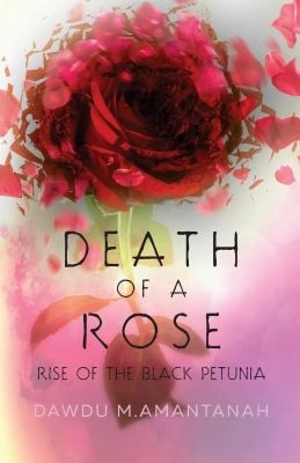In his debut book of poetry, Death of a Rose, Rise of the Black Petunia, Dawdu M. Amantanah exhibits the depth and focus of his poetic form. Each of his poems builds on his previous ones. His rhythm and cadence are unique. Sometimes their beat is obvious and straightforward, thumping their message emphatically; other times, it is softer, less definite and much more subtle. His vocabulary and imagery choices reveal how clearly attuned he is to his subject.
[alert variation=”alert-info”]Publisher: Death of a Rose Rise of a Black Petunia
Formats: Paperback
Purchase: Amazon | IndieBound[/alert]
He edges into his book with a quote from Tupac Shakur’s The Rose That Grew from Concrete, which describes not only the strength of a rose, no matter how damaged its petals, but also that survives growing through cracks in the concrete, ending with “…don’t ask me why, thank God, and ask me how.” Amantanah embraces this delicate yet strong flower imagery and takes it one step further: he describes himself as being from as well as beyond the imported rose in the form of a new, strong, hybrid black petunia. Throughout his poetry and prose his ideas and language continue to expand on this dynamic image.
His life views are expansive, as shown in this excerpt from his poem, “Rich Religion”:
“Prophets spin turntables & carry boom boxes
Spewing boom bap beats from their speakers
I was baptized on the asteroid belt.”
Beliefs and prophecies show up everywhere in daily life, if one is observant, as Amantanah clearly is. He draws from daily experiences and reveals that he has a crystalline ability to convert his observations into what he terms his poetic revolution.
Although there are a few rough spots in Death of a Rose, Rise of the Black Petunia, they make the prose and poetry earthy and accessible. All in all, I look forward to reading more poetry from Dawdu M. Amantanah.
[signoff predefined=”Social Media Reminder” icon=”facebook”][/signoff]

